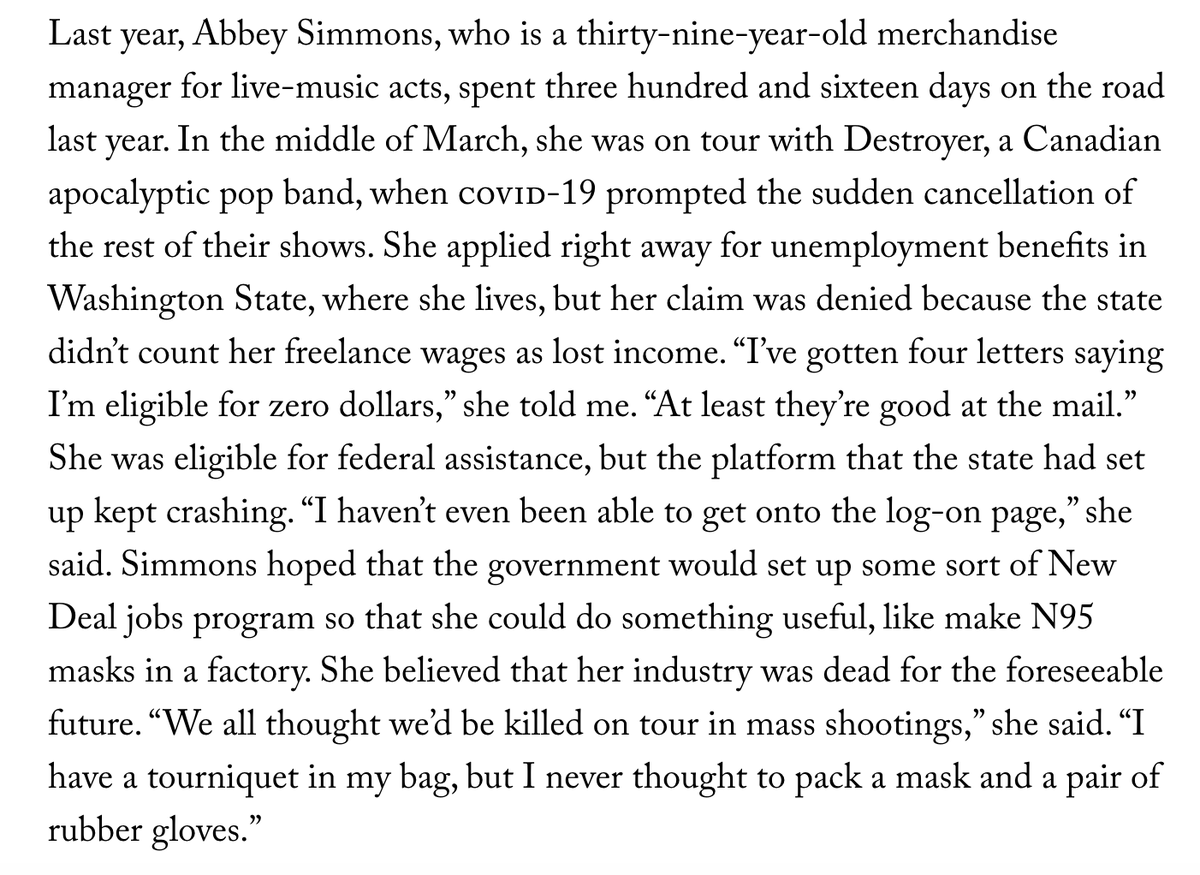
Quick thread on Spotify discontent: in any kind of corporate accountability work, activists usually end up making demands of companies, including things they know the targeted companies are unable or unwilling to do. It’s a pretty standard tactic and can help shift the discourse.
Some observers are going to look at “impossible demands” as a reason to dismiss activists, or claim that those calling for change don’t understand the issues. This is also a pretty standard tactic, and a risk of that approach.
With streaming royalties & music licensing, the details of agreements are complex, and often deliberately intransparent. Same is true of the business structures behind venture capital, private equity, revenue vs stock price--people get advanced degrees so they can understand it.
Long before digital streaming existed, musicians who raised concerns about industry practices were told by those in power that they didn't understand "how things work." None of this is new or specific to any company or technology.
To be fair, there have been moments where certain artist/activists *haven't* understood how things work, owing in part to complexity, intransparency, difficulty of obtaining information, or other factors. It is important to get analysis right. Details matter. Context matters.
And accurate power analysis matters perhaps most of all. Effective corporate accountability strategy includes understanding why targeted companies take the positions they take, and ways their ability to change course might be constrained: it's not enough to call 'em greedy.
Still, too much of the streaming music discourse as it's played out in music business and policy fields has involved a kind of technocratic gatekeeping that leads to worker concerns getting dismissed, upholding an unsustainable status quo.
This isn't unique to music either--it's a problem across every policy field we've worked on--telecom, antitrust, IP, health policy. You can bet that someone is making good money coming up with reasons that valid concerns should be waved away.
Look at the history of critical voices around streaming. Some dismissed early concerns from Thom Yorke and David Byrne because they were "too successful, "out of touch. Other artists were dismissed because they weren't "successful enough" to have a broad view of the industry!
(And of course, musicians are a diverse population, with divergent goals, career paths, needs, community values, etc--so there's never gonna be a silver bullet fix. We need structures to enable diversity of practice, not one-size-fits-all approaches.)
Sometimes folks wonder why there are as many musician/creator groups as there are. It's kind of the same reason there's a lot of different environmental policy groups--effective movements and coalitions involve diversity of strengths, tactics, and areas of focus.
One eco-activist group might target a specific notorious polluter with a PR campaign, another might work to address the regulatory failures that allow that pollution to happen, while another might work for federal investment in greener technological solutions.
Some activists focus on rates from Spotify, others focus on transparency and business models across music streaming; at times FMC might focus especially on the public policy and legal structures that limit artists' leverage collectively and individually.
We think the broad, sometimes wonky point of view we've offered for 20 years now is a crucial contribution because it connects the disparate pieces--to understand how Spotify's low rates are only made possible by YouTube's even lower rates, and FM radio's failure to pay at all!
But as long as we all endeavor to keep the lived experience of musicians, songwriters, and music communities at the center of every music business and policy discussion, we're gonna be on the right track.
So, sure, you can do the math and understand why Spotify can't pay out a penny per play. It's worth understanding, but it's also kinda missing the point. Twelve years in, there's still broad and deep frustration about this model among the musician population.
• • •
Missing some Tweet in this thread? You can try to
force a refresh



